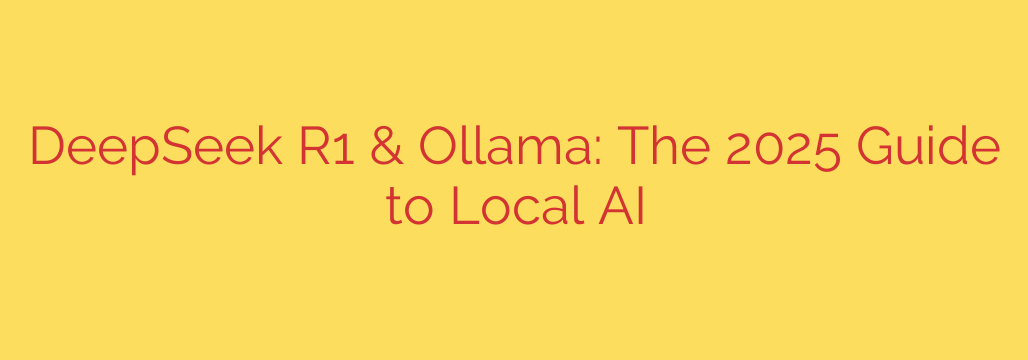
As we look towards 2025, the landscape of local AI is set for significant advancements, driven by powerful open-source models and user-friendly platforms. A key area of focus is running sophisticated large language models (LLMs) directly on personal hardware, enabling unprecedented levels of privacy, speed, and control. This move towards offline inference is becoming increasingly practical, thanks to innovations in model architecture and efficient serving tools.
One notable development involves the potential integration of models like DeepSeek R1 within local AI frameworks. Such models, when optimized for on-device execution, promise advanced capabilities for tasks ranging from creative writing and coding assistance to complex data analysis, all without relying on cloud services. The ability to perform these operations locally is a game-changer for users concerned about data privacy or those requiring low-latency responses independent of internet connectivity.
Platforms like Ollama are central to making this vision a reality. Ollama simplifies the process of running LLMs locally by providing a straightforward way to download, manage, and interact with various models. Its ease of use lowers the barrier to entry for enthusiasts and developers alike, allowing them to experiment with and deploy powerful AI models on their own machines. This platform acts as an essential bridge, abstracting away much of the complexity typically associated with setting up and running large neural networks.
The combination of powerful, optimized models and accessible serving platforms is paving the way for a future where advanced AI capabilities are not just cloud-based services but integral parts of our personal computing environments. This shift emphasizes the growing importance of efficient model quantization, specialized libraries, and hardware acceleration (like GPUs) to ensure smooth performance on diverse hardware configurations. Understanding the hardware requirements remains crucial, as the performance of local models is directly tied to the capabilities of the user’s machine.
Ultimately, the trajectory points towards more empowered users who can harness the full potential of AI with greater control over their data and computational resources. The ongoing advancements in open-source AI models and the platforms designed to run them locally represent a fundamental step in democratizing access to cutting-edge artificial intelligence, making sophisticated capabilities readily available for personal and professional use in the coming year.
Source: https://collabnix.com/deepseek-r1-with-ollama-complete-guide-to-running-ai-locally-in-2025/








